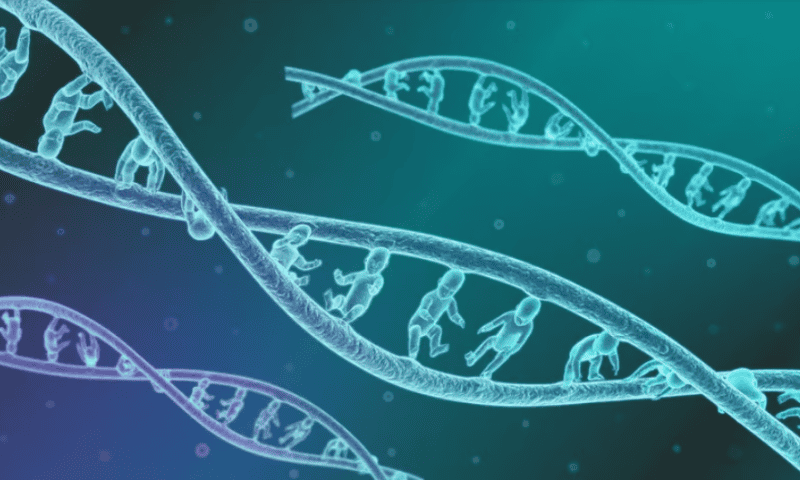It’s one of the most exciting ideas in medicine: prenatal cell and gene therapy, where pathological gene mutations and diseases are corrected in the fetus before it ever leaves the womb, protecting against a lifetime of illness or even early death.
Studies in animals are already homing in on candidate conditions and revealing new strategies for overcoming technical barriers. While success in humans has so far been limited to a handful of case studies involving cell therapies, even failures bring the science one step closer to translation.
But, as University of California, San Francisco (UCSF) anthropologist Julia Brown, Ph.D., explained in a May 8 session at the 2024 American Society for Gene and Cell Therapy meeting in Baltimore, this progress comes with ethical concerns.
“Ultimately, [prenatal gene and cell therapy] is ethical when there is evidence that scientific capabilities meet unmet medical need, which can be understood as a form of beneficence, and there is autonomy and justice for end users,” Brown said during her talk. By “beneficence,” she meant a benefit and a maximization of nonmaleficence, she explained, and, by “autonomy,” protecting the integrity of those involved.
The ethical concerns with prenatal gene therapy are wide-ranging and often overlap with concerns around gene therapy in general, ranging from logistical issues like cost to broader philosophical concerns around the impact such therapies could have on society. But prenatal gene therapy is unique in that there are two patients involved.
“We’re not just talking about the fetus, although they are the primary beneficiary of the treatment,” Brown said. “They of course can’t consent—the consent is up to the pregnant person and partner if available. And it’s important that the pregnant person is not just treated as the vessel for the fetus.”
Brown is a postdoc in UCSF’s bioethics program, where she works with the institution’s Center for Maternal-Fetal Precision Medicine and conducts research involving families who are participating in phase 1 trials for prenatal cell therapies. She noted that there is a sense of control among parents whose children are given the chance to have prenatal gene therapies, as they have the opportunity to at least try to intervene in the course of their children’s disease before they are born—a worthwhile endeavor even if the treatment ultimately fails.
“This is in contrast to what I’ve observed talking with families who have no prenatal options—they’re given a diagnosis and … [they can] continue a pregnancy or terminate,” Brown said. “[Those] are very passive decisions, where here we’re talking about an active decision of trying something. Even though it’s a phase 1 clinical trial, the benefits of people feeling like they’re making an active choice are really crucial to think about.”
There’s also a sense of “healthy detachment,” as Brown put it, during the prenatal period that makes treatments at that stage less of an emotional burden on the parent. This changes after birth, however, said Brown, who cited a trial subject.
“The in utero transfusions, I feel like it’s more … for me, and then whatever happens to me, I can take it. But when he has his transfusions now that he’s born, it definitely is more traumatic,” one subject told Brown, as she shared during the presentation. “I do find it more difficult as he’s getting older to see him crying and then being able to vocalize it in telling me that he’s in pain.”
These experiences illustrate the value of prenatal cell and gene therapies for families. However, they don’t address broader, trickier concerns around equity and justice at a societal level, another important piece of the ethical puzzle. For example, participants in trials for sickle cell gene therapies—a condition that mainly affects people with African ancestry—have expressed concerns about being abandoned after essentially serving as guinea pigs for the technology, Brown said. Their concerns are justified because, as one medical ethicist she interviewed explained, these treatments are sometimes seen as “scientific endeavors” rather than bona fide therapies, absolving the companies that create them from having to think about equity.
Similar lines of thought apply to considering whether a treatment is affordable enough to ensure it becomes a standard of care. As one scientist who studies CRISPR gene editing told Brown: “For-profit entities … have a fiduciary responsibility to maximize shareholder value. Unless the academics and the nonprofits push for [equitable access], it’s never going to happen.”
“This is a really tough situation for the people working in the academic medical center space, where it can feel like all the onus is on us to be thinking about equity, but it would be nice if it expanded beyond that setting,” Brown said.
Prenatal care is already inequitable, Brown pointed out. New options for treating prenatal disease risk deepening those divides if equal access isn’t considered a priority. That makes them inherently unethical: Without access to all options, people can’t make an ethical choice, she said.
“We have to make sure that people are not coerced into trying these experimental treatments, but are given all options when making that decision,” Brown said.

